Abstract
Streptomycin-resistant strains were isolated from a degenerated streptomycin-producing culture of Streptomyces griseus. From 250 resistant strains, 3 low, 2 intermediate, and 2 high potency strains were selected; these were compared in their morphological, cultural, physiological, and streptomycin-producing properties. Though no definite correlation between streptomycin production and the other properties could be obtained, the following correlations were considered as distinct differences among the low, intermediate, and high potency strains. (i) When streptomycin-producing ability degenerates, more submerged spore formation or fragmentation of mycelium into shorter filaments appears to occur. (ii) On agar medium, low and intermediate potency strains often show finely wrinkled growth; high potency strains do not show such characteristics. (iii) High potency strains excrete a distinct yellow soluble pigment on synthetic agar medium and on glucose-yeast extract agar, but low and intermediate potency strains show little or no ability to form this soluble pigment. (iv) In low and intermediate potency strains, inositol and arginine did not stimulate streptomycin production as they did in high potency strains. Streptamine showed some stimulating effect in the high potency strains and, in contrast, a depressive effect in intermediate potency strains, though streptidine showed a distinctly stimulating effect in all groups of strains employed.
Full text
PDF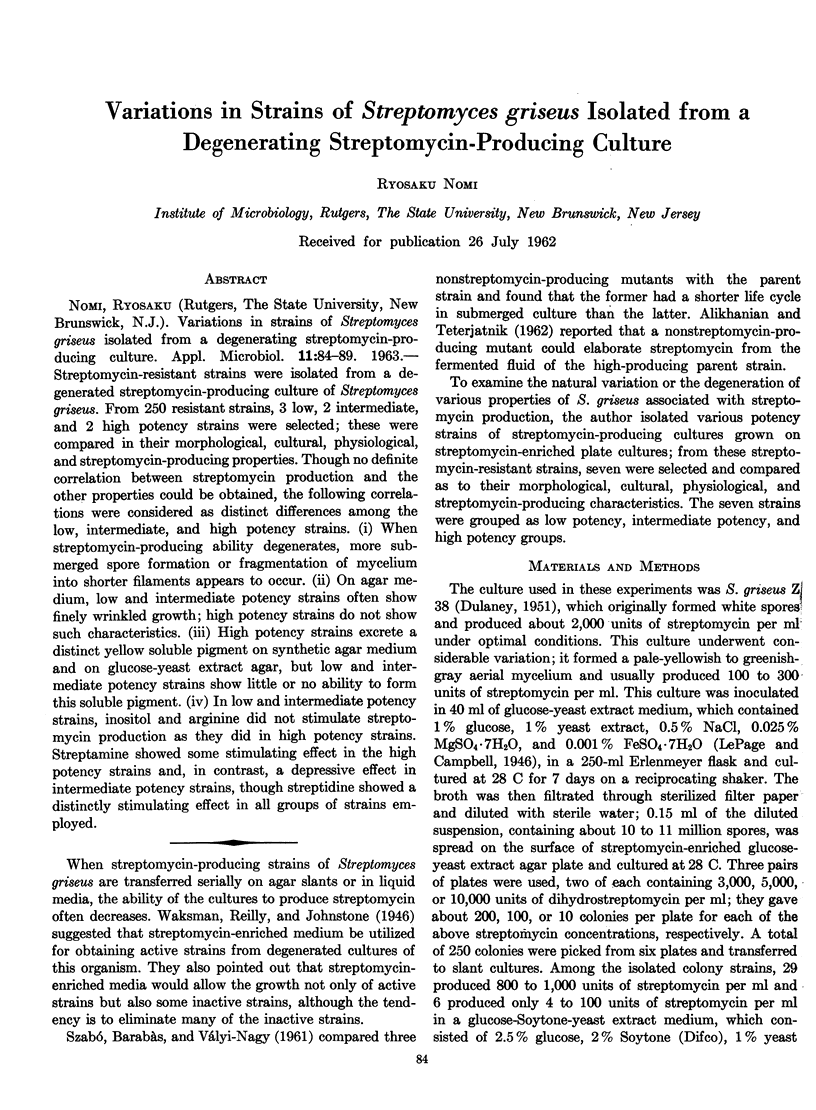
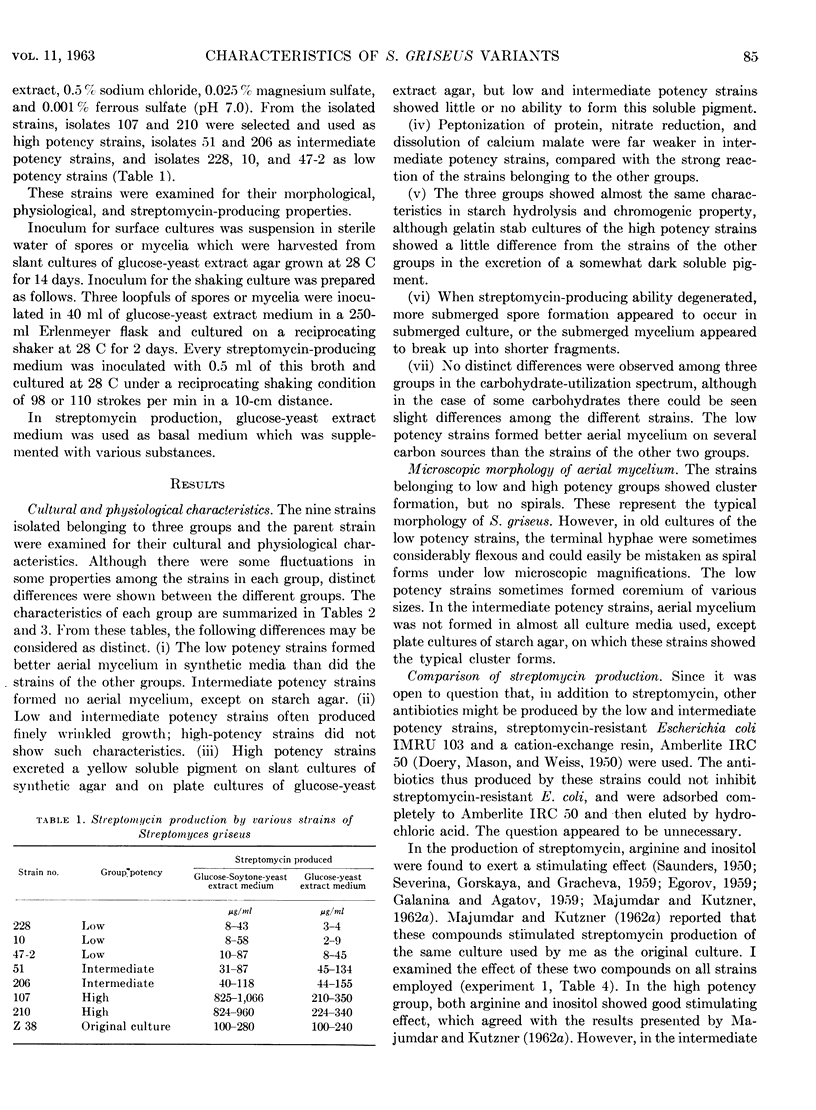
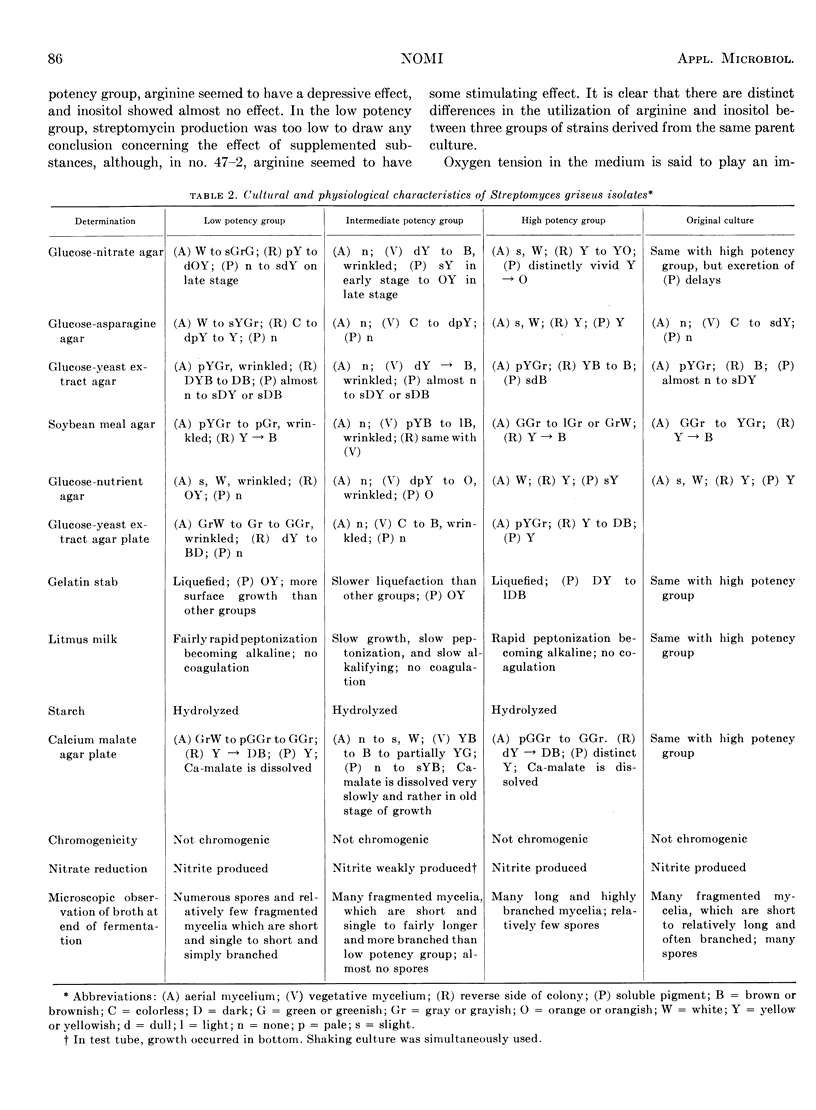
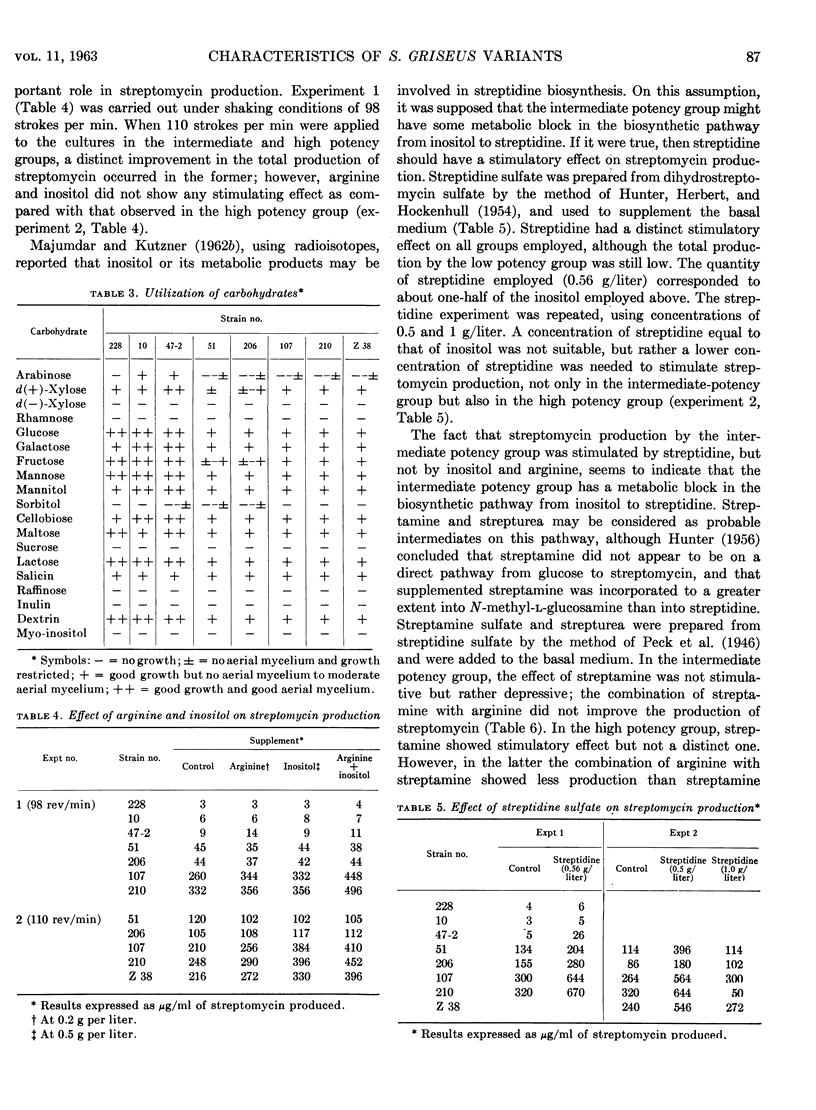
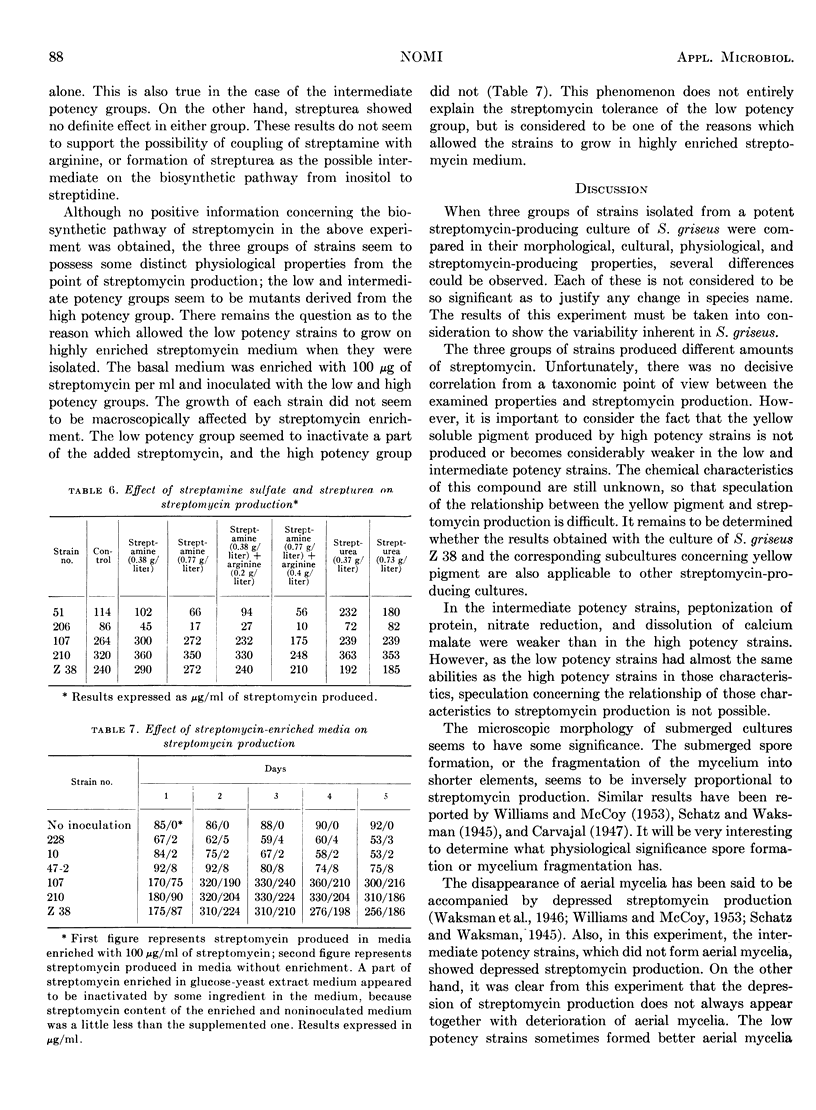
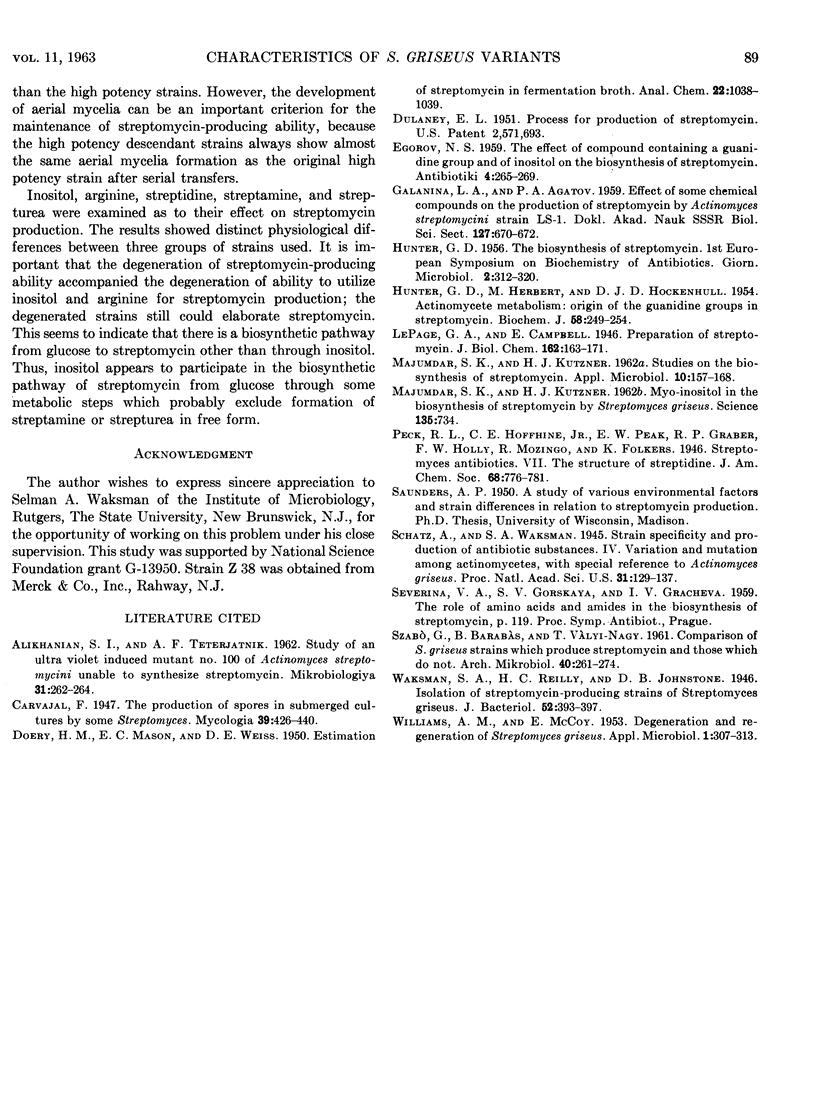
Selected References
These references are in PubMed. This may not be the complete list of references from this article.
- ALIKHANIAN S. I., TETERIATNIK A. F. [Studies on the ultraviolet mutant of Act. streptomycini No. 100 without the capacity to synthetize streptomycin]. Mon Bull Minist Health Public Health Lab Serv. 1962 Mar-Apr;31:262–264. [PubMed] [Google Scholar]
- HUNTER G. D., HERBERT M., HOCKENHULL D. J. Actinomycete metabolism: origin of the guanidine groups in streptomycin. Biochem J. 1954 Oct;58(2):249–254. doi: 10.1042/bj0580249. [DOI] [PMC free article] [PubMed] [Google Scholar]
- MAJUMDAR S. K., KUTZNER H. J. Myo-inositol in the biosynthesis of streptomycin by Streptomyces griseus. Science. 1962 Mar 2;135(3505):734–734. doi: 10.1126/science.135.3505.734. [DOI] [PubMed] [Google Scholar]
- MAJUMDAR S. K., KUTZNER H. J. Studies on the biosynthesis of streptomycin. Appl Microbiol. 1962 Mar;10:157–168. doi: 10.1128/am.10.2.157-168.1962. [DOI] [PMC free article] [PubMed] [Google Scholar]
- Schatz A., Waksman S. A. Strain Specificity and Production of Antibiotic Substances: IV. Variations Among Actionomycetes, with Special Reference to Actinomyces Griseus. Proc Natl Acad Sci U S A. 1945 May;31(5):129–137. doi: 10.1073/pnas.31.5.129. [DOI] [PMC free article] [PubMed] [Google Scholar]
- WILLIAMS A. M., McCOY E. Degeneration and regeneration of Streptomyces griseus. Appl Microbiol. 1953 Nov;1(6):307–313. doi: 10.1128/am.1.6.307-313.1953. [DOI] [PMC free article] [PubMed] [Google Scholar]
- Waksman S. A., Reilly H. C., Johnstone D. B. Isolation of Streptomycin-producing Strains of Streptomyces griseus. J Bacteriol. 1946 Sep;52(3):393–397. [PMC free article] [PubMed] [Google Scholar]


